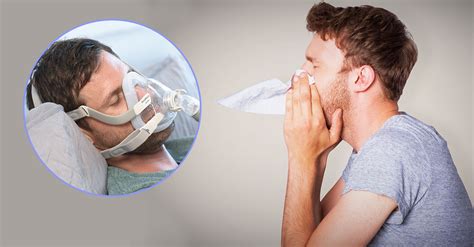Continuous positive airway pressure (CPAP) machines are a common treatment for obstructive sleep apnea. However, concerns often arise regarding whether CPAP machines can make users sick. Harvard Health and Mayo Clinic Health System provide valuable insights into this matter.
The good news is that it’s very unlikely you’ll get sick from a CPAP machine if you clean it regularly. Here’s how: Wash the mask, water chamber, and tubing in hot soapy water every morning. Ensure to submerge the tubing so that water runs through it. Let all of the parts air dry. Once a week, wash the headgear and the filter.
Bacteria and mold can accumulate in various parts of the device, but regular equipment cleaning reduces risks. Adapting to CPAP can be challenging. The mask may feel bulky, or it may feel strange to have air blowing in as you try to breathe. This keeps many people from using a treatment that could significantly improve their health.
CPAP-related issues such as red, swollen eyes, and sinus infections can occur. If your mask is leaking or the pressure is too high, air can escape up toward your eyes and irritate them. This issue can be fixed by checking the fit and style of your mask. Some limited studies suggest that if a patient has glaucoma, the air pressure can increase pressure in the eyes.
Technological advances may improve CPAP comfort and adherence. These include heated humidification, a comfort intervention that can help with nasal congestion and dryness, and ramp-up features that allow the machine to start off at a low or minimal pressure as the patient adjusts and falls asleep.
Sinus blockage can have a variety of environmental, anatomical, and genetic causes. The main culprit is swelling of the nasal passages produced by the common cold or allergies. More serious sinusitis can result from structural problems such as a deviated septum.
To soothe sinusitis symptoms, use nasal rinses, decongestants, and pain relievers to ease your symptoms while your body fights the infection. Other factors that can block your sinuses and lead to infection include allergies, cigarette smoke, changes in barometric pressure, nasal polyps, and a deviated nasal septum. Painful pressure is the main symptom of a sinus infection.
For more detailed information, you can visit the following sources:
Harvard Health,
Harvard Health,
Mayo Clinic Health System,
Harvard Health,
Harvard Health,
Harvard Health, and
Harvard Health.
